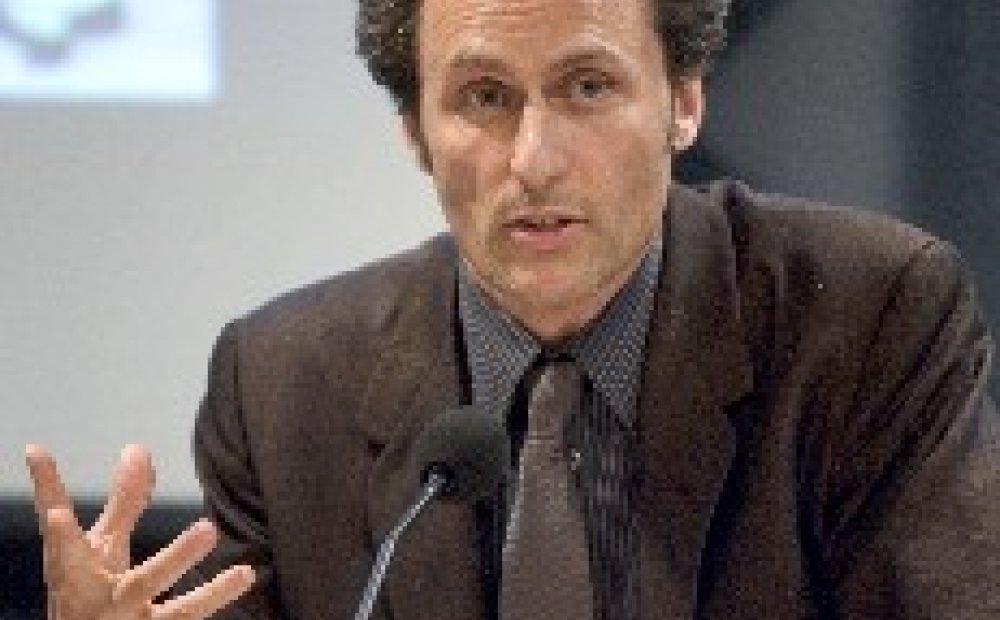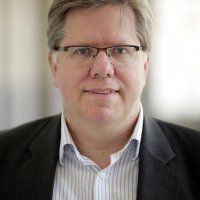Waiting for Democracy: Politics of Choice in Natural Resource Decentralization

Almost all of the world's developing countries are decentralizing power, at least half in the natural resource sector. These reforms promise to empower people through local democratic representation and more equitable resource management. But the movement is stalling: decentralization legislation rarely fulfills its democratic promise.
The World Resource Institute (WRI) report Waiting for Democracy: The Politics of Choice in Natural Resource Decentralization draws on cases from Africa, Asia, and Latin America to examine the social and ecological effects of these "democratic" decentralizations. Wilson Center Fellow and report author Jesse Ribot described the report's findings and recommended further opportunities for research at a meeting cosponsored by the Africa Program, Latin American Program, and Environmental Change and Security Program.
Defining Decentralization
"What is this beast called decentralization?" asked Ribot, defining it as the transfer of powers from central government to lower levels within the political administrative hierarchy. "Decentralization…is not new," he observed. "We're just in the most recent wave of decentralizations in developing countries." Following the privatization boom of the Thatcher/Reagan revolution, an alternative form of decentralization emerged, transferring power to NGOs and other private voluntary organizations. However, "some kinds of service delivery needed government," Ribot argued, so over the last eight years, "government comes back in, but this time, local government."
According to Ribot, recent research showed that "the vast majority of countries in the developing world were decentralizing; well over half claimed to be decentralizing in the natural resource sectors; most claimed their decentralization was indeed democratic; and most claimed they were trying to strengthen local government." Despite this revival of interest, "surprisingly little research has been done…on the form they have taken and the effects they've had." WRI's three-year research program examined natural resource decentralizations in 15 countries: Bolivia, Brazil, Cameroon, China, India, Indonesia, Mali, Mongolia, Nepal, Nicaragua, Senegal, South Africa, Thailand, Uganda, and Zimbabwe.Why focus on natural resources? "Rural people depend on natural resources…but so do nations and national elites," Ribot noted. "Everybody is a stakeholder." Asif Shaikh, president and CEO of the International Resources Group, agreed. "A significant percentage of the dominant elites in most societies throughout history emerged…through control of natural resources…The stakes are enormous."
Still Waiting for Democracy
But does decentralization work? Despite some partial reforms, "we found that there was a failure to establish democracies that hold real powers," reported Ribot. "Well after the reforms had been legislated, well after the governments claimed they had implemented the reforms, and also well after most donors had claimed that they were great successes you could measure," the people were still "waiting for democracy."
Ideally, effective decentralization would place accountability and powers in the hands of local institutions (i.e., downward accountability). "But what happens in practice is a whole other story," said Ribot, who found, across all the cases, that "where you had the transfer of powers to local institutions, those institutions were upwardly accountable, almost systematically. When you found downwardly accountable institutions, they had no significant, meaningful discretionary powers." Discretionary power is key: for an institution to be responsive—which is part of being democratic—it must have the discretion to exercise powers to match needs.
But when power was transferred, it was rarely given to elected local officials. And, "even when we looked at local elected officials, they were not democratic…Elections don't make democracy," Ribot noted wryly.
The case studies showed that donors often chose to transfer power to NGOs and community groups over democratically elected governments. And, "donors love chiefs," Ribot claimed, even to the point of "trudging up defunct customary systems that then end up competing with democratically elected governments." By favoring chiefs and NGOs over elected local government, donors trade procedural objectives of democracy for the instrumental objectives of natural resource management—"a dangerous game to play," according to Ribot.
Recommendations
Ribot summarized Waiting for Democracy's recommendations for improving decentralization:
- Develop principles to guide choices;
- Bring the state back in;
- Choose fewer institutions;
- Nest institutions, so that those with power over public resources are elected, democratic authorities;
- Do not transfer public powers to private institutions;
- Use participation as a tool, not a substitute; and
- Use committees as tools, not as means to circumvent authorities.
Andrew Selee, director of the Wilson Center's Mexico Institute, observed that despite the lip service paid to democratization, "most of us don't really like local governments," as they tend to have fewer resources, less continuity, more corruption, and vestiges of authoritarian rule, among other problems. However, if the local government is bypassed for NGOs, "we end up not having a public space. If we want a public space…we need to be concerned with public institutions at a local level." He offered his recommendations for improving decentralization:
- Decentralize to local governments;
- Worry about the nature of those institutions (develop electoral rules, transparency and monitoring programs, and institutional channels for participation between elections);
- Do not abandon other sources of power (e.g., civil society, media);
- Devolve real powers to local governments; and
- Do not make a weak national state weaker, since a strong national state is needed to perform some central functions.
Key Unresolved Issues
Shaikh, coauthor of Nature, Wealth, and Power, outlined some key unresolved issues in the decentralization debate:
- Decentralize to local governments;
- Worry about the nature of those institutions (develop electoral rules, transparency and monitoring programs, and institutional channels for participation between elections);
- Do not abandon other sources of power (e.g., civil society, media);
- Devolve real powers to local governments; and
- Do not make a weak national state weaker, since a strong national state is needed to perform some central functions.
- Democratic decentralization can be "despotic" decentralization (i.e., hereditary authority is incompatible with democratic institutions);
- Decentralization holds some inherent dangers (non-local groups may have a better appreciation of long-term and large-scale issues; elites can sometimes be more powerful in local areas; and marginalized groups—women, poor, minorities—often do poorly);
- Decentralization is not the same as power, as the power does not usually reside with local populations; and
- Can any state successfully decentralize without a strong, clear constitutional principle at the national level that transcends whatever local decisions are made?
Ribot bemoaned the proliferation of local institutions and identity- and interest-based politics that fragment the public arena. Decrying the re-emergence of customary authorities in Africa, he warned that they are "coming back, and coming back very strongly, and making all kinds of claims to authenticity and legitimacy…backed often by donors and governments." If democracy and representation are only for the "authentic," it is not democratic. "Authenticity squelches dissent….and enforces separatism, conformism, and intolerance," he concluded.
Postscript: Renaissance Man
"You have to be in awe of someone who can do a comparative global edited volume on decentralization, a policy book on decentralization, and can also do a children's book on the same subject," said Selee of Ribot. In his cautionary story, "The Business of Sustainable Development—An African Forest Tale," Ribot describes in Seussian verse the European exploitation of an African village's timber. The popular Senegalese glass painter Mor Gueye illustrated the forest tale with luminous panels.
Drafted by Meaghan Parker.
Speakers

Senior Associate, Institutions and Governance Program, World Resources Institute

President, Migration Policy Institute
Hosted By

Environmental Change and Security Program
The Environmental Change and Security Program (ECSP) explores the connections between environmental change, health, and population dynamics and their links to conflict, human insecurity, and foreign policy. Read more


Africa Program
The Africa Program works to address the most critical issues facing Africa and US-Africa relations, build mutually beneficial US-Africa relations, and enhance knowledge and understanding about Africa in the United States. The Program achieves its mission through in-depth research and analyses, public discussion, working groups, and briefings that bring together policymakers, practitioners, and subject matter experts to analyze and offer practical options for tackling key challenges in Africa and in US-Africa relations. Read more


Latin America Program
The Wilson Center’s prestigious Latin America Program provides non-partisan expertise to a broad community of decision makers in the United States and Latin America on critical policy issues facing the Hemisphere. The Program provides insightful and actionable research for policymakers, private sector leaders, journalists, and public intellectuals in the United States and Latin America. To bridge the gap between scholarship and policy action, it fosters new inquiry, sponsors high-level public and private meetings among multiple stakeholders, and explores policy options to improve outcomes for citizens throughout the Americas. Drawing on the Wilson Center’s strength as the nation’s key non-partisan policy forum, the Program serves as a trusted source of analysis and a vital point of contact between the worlds of scholarship and action. Read more
